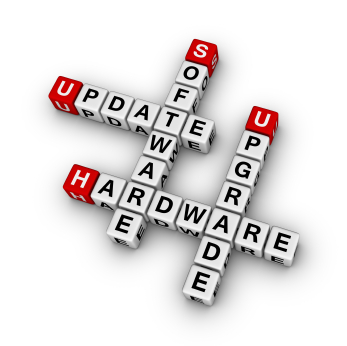The evolution in the world of high technologies is proceeding at a rapid pace, creating new trends everywhere and changing the usual way of working. One of these changes was the fall in demand for traditional hardware due to the emergence of a new type of device with the 'smart' prefix.

To date, forecasts for sales of PCs, smartwatches, and even smartphones cannot be called satisfactory. The problem is that consumers and businesses have already purchased all of these devices. Plus, they haven't been buying new devices to replace old ones for a relatively long time, longer than many might imagine. As a result of such changes in the market in the staff of many companies, including Intel and Qualcomm, painful staff reductions were made, and similar processes in the staff of other vendors are quite likely. Does this mean the end of the 'hardware' as we knew it? On the one hand, yes, we must assume that we are witnessing the peak of development of key categories in terms of hardware. As a result, starting this quarter, we are likely to see a moderate decline in vehicle shipments. It's hard to accept this kind of news after more than thirty years of growth.
But there is still hope for the sphere. You just need to rethink your attitude to the market. The key point is the understanding that the spread of information and computing technologies has become extremely diverse. Of course, many of these technologies are moving to the cloud and data centers around the world. In this case, calculations are carried out not only by means of the central processor, but also on the basis of graphic processors. In fact, the architecture of modern servers, as opposed to traditional ones, is more similar than that of ultra-powerful PCs.
But it should be understood that not all calculations go to the 'cloud'. More and more computing and artificial intelligence systems are being placed in devices that are out of the ordinary. For example, new machines contain the maximum amount of 'untamed' computing power, and this parameter will only increase over time. We can also observe how many other devices that previously could not boast of using any current technology became 'smart'. From smart speaker systems to smart cars, the list of such devices is expanding rapidly. Be that as it may, unlike traditional computing devices, new-generation gadgets use several types of computing technology. In fact, in many cases, we are talking about data processing based on sensors: a minimum of traditional computing power, coupled with a variety of information-generating sensors, interconnected by wireless communication elements.

In addition, the integration of intermediate stages into the data processing process is starting little by little. This is not only about the direct 'communication' of client devices with the server, they are often intermediate, for example, as various gateways located somewhere in the process of computing. More and more efforts are being made to distribute different types of load and activity between smart clients and servers to intelligently take advantage of the key benefits of each. If you put together all the devices and the components required for them, then you can understand that there is still room for creating and selling hardware. But it's also clear that the hardware market has changed. And even the companies involved are likely to partner with a completely different set of hardware vendors.
Component and semiconductor manufacturers that can adapt to the new reality will easily cope with this transition, although it is likely that we will see changes in the scope, power and influence of such companies as they begin to be influenced by changes in the market. Manufacturers of finished products will have much more problems. Several well-known brands may disappear in the new paradigm. Many of those who remain will find themselves in an unfamiliar situation, and some of them will make changes in their work necessary for survival.

Much has been written about the increasing importance of software in the new world and there is no doubt about the importance of this component. However, it is very important to remember that the resulting new hardware combination requires a similar change in software. The new world will not be driven by mobile apps. Research and development of artificial intelligence systems, deep learning, analytical algorithms and the like point to an all-pervasive, but at the same time hidden from the eye, software that is easier to adapt to us than vice versa.
The end of continued growth in sales of traditional components is a milestone in the industry's continued evolution, but it does not mean the end of the hardware era in general. The impact of the process that has begun is already being felt, but no doubt its echoes will be more tangible than expected.
Original article by Bob O'Donnell
The market is gradually coming to a kind of satiety: the consumer has a small 'flock' of gadgets that perform their functions the way the owner needs and he does not see the need to quickly exchange them for new versions. Product cycles are lengthening, sales are falling, and hardware manufacturers can only hope for new trends in the field of mobile electronics, for example, 'smart' devices included in the IoT concept. A kind of stagnation in the design and differentiation of modern gadgets, especially smartphones, is universally noted by many, but the conversation about hardware is not so often. It is all the more important for component manufacturers to find a new niche to replace the one that has become not entirely profitable.
Such changes can undermine the work of the once large players, we are already seeing steps aimed at optimizing the resulting costs. Admitting a negative scenario, we can conclude that a kind of insurance against such risks can only be their own production of “iron” for their own gadgets. However, not everyone has the need and ability to establish it. Will the new trend be a verdict for manufacturers of components and gadgets? In the near future, everything will become clear.
